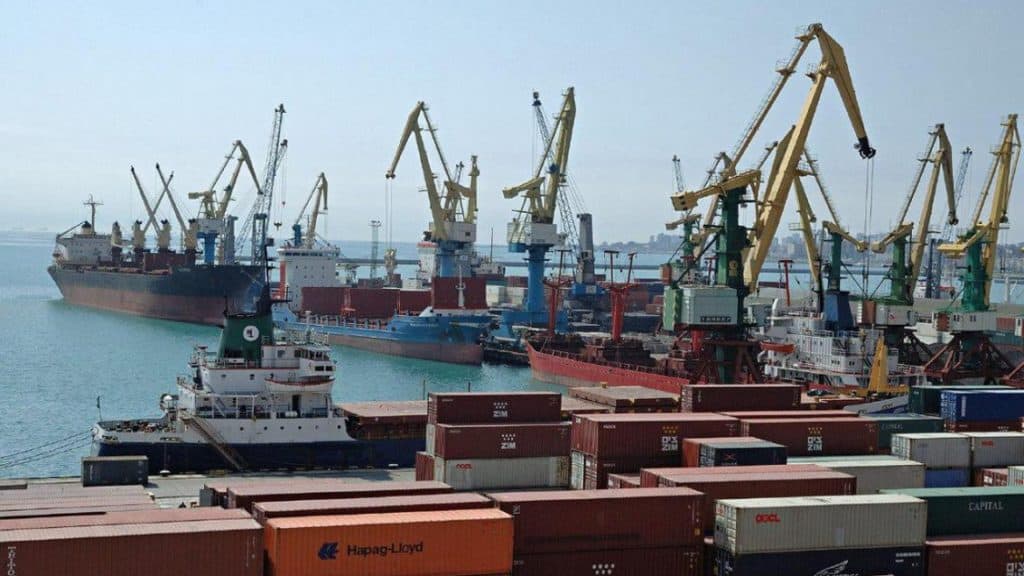By Anton Evstratov
The coronavirus pandemic, and the economic problems it caused, have intensified the ever-increasing confrontation between the two most powerful world powers of our time: the United States of America and the People’s Republic of China (PRC).

Through the Secretary of State Mike Pompeo, Washington accused Beijing of developing and transferring COVID-19 to the United States, which is currently the world leader by number of cases. Despite protests from the PRC and the rejection of such assumptions, the American side is currently imposing anti-Chinese measures in every possible way around the world.
One of the most important fields of conflict has become the telecommunications sector, where the Chinese state corporation Huawei, which is developing a 5G network not only in China, but around the world, including major European countries, has been attacked by Washington. And if earlier of this year European states did not succumb to American pressure, simply not having a viable alternative to Chinese technologies, then recently US efforts have begun to bear fruit – so far at the level of statements and intentions, for example, from Great Britain and other trusted Washington allies.
Furthermore, the United States has accused China of stealing technologies, in particular, regarding developments in the fight against the coronavirus and creation of a vaccine. The US has already indicted Chinese scientists (alleged hackers Li Xiaoyu Dong Jiazhi) and closed the PRC consulate in Houston in late July. Furthermore, perhaps the most famous Chinese researcher operating in the United States, the biologist Juan Tang, due to the aforementioned suspicions, had to temporarily hide from American justice at the Chinese mission in San Francisco.
And this is not the limit, because US President Donald Trump has already announced the possibility of closing new Chinese consulates, including. the aforementioned representative office in San Francisco, as well as the introduction of economic sanctions against China (especially against the banking sector), mainly related to Beijing’s pressure on Hong Kong and the actual collapse of the China’s One Country Two Systems policy.
The Americans have not forgotten geopolitical issues, accusing China of repressing Muslim Uyghurs in the Xinjiang Uyghur Autonomous Region, and trying to limit Chinese activity in the South China Sea by supporting the traditional opponents of the PRC in the region, Japan and Taiwan, and the constant presence of US warships. This confrontation is so important for United States that even if the current head of the country hands over his post to the democratic candidate Joe Biden, in the upcoming presidential election, the willingness of the United States to face China may only increase, because Biden criticizes Trump for lack of determination to confront China.
It is only the worsening of the clash between the coronavirus and the collapse of the world economy, despite the global confrontation between Beijing and Washington, albeit with less intensity, which has been taking place for some time. The reason for this is both the economic competition between the two main world players and their radically different metaphysical visions, approaches and methods of conducting foreign and domestic policies, and a different socio-economic system. The current situation looks a lot like the Cold War between the United States and the Soviet Union, with, however, a number of significant differences.
Firstly, the official level of confrontation is still much lower: so far there is no talk of military confrontation, only macroeconomic issues are raised. Secondly, the two countries, having a number of difficult problems to solve between them, are nevertheless strongly involved in their respective economies and cannot do without each other. China – without American technologies and sales markets, United States – without Chinese human resources, and the largest sales market on the planet.
Furthermore, even the aforementioned American allies in Europe are not able to really do without Huawei, because, even if they have theoretically appropriate technologies, they will be forced to relocate production from China, to place it in other countries, which will require huge means. and amount of time incompatible with technological progress.
China, in turn, has already responded several times to American pressure – and not only on the diplomatic level, where Chinese representatives repeatedly refute the allegations of the United States, but also on the level of real affairs. Thus, in July, a few days after the closure of the Chinese consulate in Houston, the authorities of the PRC closed the American office in Chengdu, expressing their readiness to continue to act in the same spirit.
Furthermore, China is lengthening the front of the confrontation, operating more actively in the Middle East. For example, the PRC has signed a long-term partnership agreement for the next 25 years with the Islamic Republic of Iran, which is subject to US and global sanctions. Beijing plans to invest billions of dollars in the Iranian economy, thus solving its current problems related to the pressure of sanctions. The PRC, in turn, will receive Iranian oil, which is necessary for the further development of its economy, despite American sanctions, and at affordable prices for it. Here, first, Beijing’s readiness for a direct, if non-military, confrontation with Washington is obvious, and second, the Celestial Empire’s desire for a large-scale global game.
At present, the confrontation between Beijing and Washington has long since extended beyond the borders of the PRC and the United States – the Americans, through the efforts of Pompeo himself, are striving to create a broad anti-Chinese confrontation, involving not only their traditional allies – Japan, South Korea and Taiwan, but also, for example, India, which has difficult and recently worsened relations with the PRC (armed clashes at the border and transfer of Chinese troops there) and, of course, the countries of Central Asia.
In many ways, the foundation of these US efforts in Central Asia was Pompeo’s visit to Kazakhstan and Uzbekistan in January-February of this year, ahead of the worldwide spread of the coronavirus pandemic. The choice of these particular states is not accidental: there, despite Washington’s claims on the transparency of the procedure, there has recently been a change of power.
Then the US secretary of state promised both countries American investments in exchange for the creation of decent conditions and democratic reforms, and also urged them to oppose Beijing, at least in terms of protecting the rights of Uighurs. Kazakhstan has even received Pompeo’s praise for the reforms already implemented (without decoding which ones) and for the positioning of Uyghur refugees from the PRC on its territory. Pompeo even met with some of these refugees and spoke with them demonstratively, urging China to stop the crackdown on Muslims.
The reaction of Kazakhstan, like the rest of Uzbekistan, to American enthusiasm turned out to be more than cold: they chose to “ignore” Pompeo’s aggressive rhetoric, continuing negotiations on economic issues that do not concern Chinese interests. And this is not surprising, because, unlike that of China or Russia, US influence in Central Asia is peripheral and insignificant, and the investments are not comparable to those not offered, but already provided by Beijing.
The politico-military component is also important in this question, because the PRC is a neighbor of the Central Asian states, while the United States is abroad and has neither the strength, nor the technical capabilities, nor the political will. to protect them from Chinese pressure, in case the need arises. An important factor is that China is ready, unlike the United States, to invest in the economies of regional countries without any prerequisite political conditions.
Therefore, it is obvious that the confrontation between the PRC and the United States will be accelerated at this stage. This is particularly true of the economic sphere, where the interests of countries clash more and more fundamentally. This is a short- and medium-term perspective, since there is no other option for maneuver either for China, or for those who have only conditionally “anti-Chinese” presidential candidates for the upcoming US elections.
At the same time, it makes no sense to speak of a “cold” war and, even more so, a “hot” war: modern technologies of interstate relations make it possible to conduct confrontation with more grace, and the structure of the modern economy fa does not imply the exclusion from it of such important elements as any of the poles of this comparison. Furthermore, it must not be forgotten that the parties to the conflict are nuclear powers and any direct military confrontation between them is technically problematic.
In this regard, the role of the peripheral theaters of confrontation is growing, including, without a doubt, Central Asia, which is, in fact, between a rock and a hard place. On the one hand, the United States, interested in ousting China, is trying to penetrate this region, relying on states with a more developed civil society and a desire for democratization – first of all Kazakhstan and Kyrgyzstan. At the same time, it is obvious that Washington simply has nothing to offer these promising partners over China, and also nothing to punish them for lack of loyalty. Beijing, on the other hand, has all the levers in this and that respect.
We must not forget the Russian factor in the region, which has always been negative towards the United States. The Russian Federation, even fearing the strengthening of China, will still cooperate with Beijing vis-à-vis the United States, which is considered much more dangerous. Therefore, the authorities of Kazakhstan should pay particular attention to the possible provocations, both political and social, that the United States can implement through its NPO (nonprofit organizations) and other structures, and also should not withdraw from a multi-vector policy emphasized on regional rather than extra. – regional players.
Author: Anton Evstratov (Russian historian, publicist and journalist living in Armenia, lecturer at the Department of World History and Foreign Regional Studies at the Russian-Armenian University in Yerevan).
(The opinions expressed in this article are solely those of the authors and do not necessarily reflect the views of World Geostrategic Insights)







